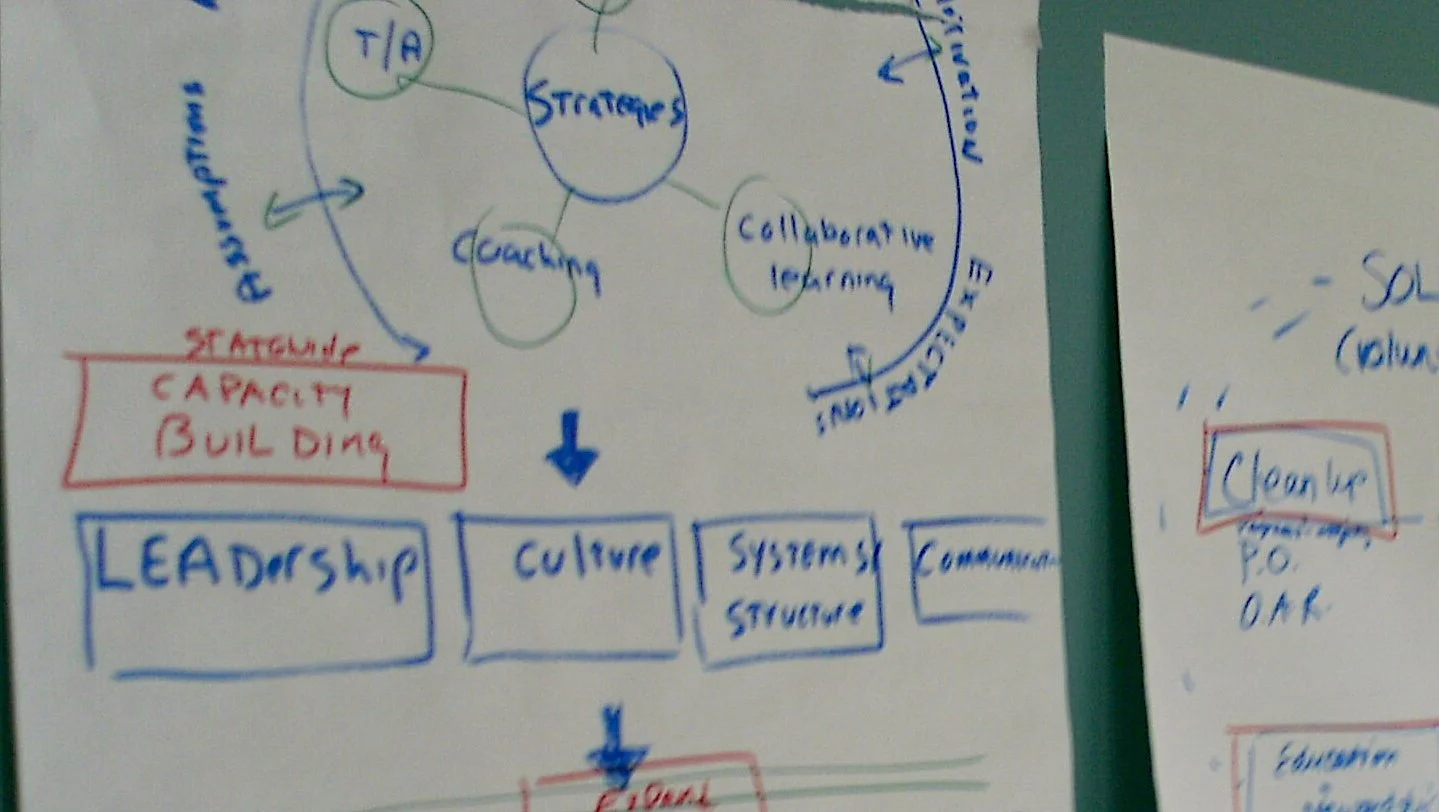Facilitating when there is more at stake
In my old consulting practice, I was constantly asked the questions, “Why should we pay for a facilitator?” and “How can we justify the cost?” In my mind, the answer to both questions starts with a third question, “What’s at stake in the outcome of the meeting?”
Look, over my career I have done a lot of meeting facilitation, received facilitation certifications, and have trained a lot of people in meeting facilitation skills. I have also endured my fair share of really poorly facilitated meetings as well. This experience taught me that all facilitation is not created equally. You can get by without a trained (and paid) facilitator when the outcome stakes are low —that is, when there is high trust and social parity among those participating in the meeting, and there is enough process expertise to effectively get to the desired outcome. Take, for example, a nonprofit agency that has a volunteer board that is managing strategy, reviewing finances, and supporting routine operations. This group’s board chair can likely handle discussions, and create closure/make decisions by fielding a motion, then a second, navigating any discussion, and conducting the vote. How well the process is documented (and followed up on), will be based on the organizational expertise of taking minutes and the supporting tracking process.
But when the stakes are high, trust or social parity between members is low, and/or the process is weak, then the need for an outside facilitator increases. Unfortunately, the idea of paying for facilitation clouds the judgement of teams to self assess their objectivity, equity, and process skills. As a result, applying the routine “we can do it ourselves” facilitation skills to high stakes meetings, at best, cheats the process, and at the extreme, results in bad decisions. Let me give you two examples,
First, let’s go back to our hypothetical nonprofit agency. Imagine if a significant crisis hit the organization. At this moment in time, that could be a direct or indirect cut to a sizable funding stream, the unplanned departure of a key staff person (say, the executive director), a community partnership that implodes, to name but a few. In any of these high stakes scenarios, there is a high likelihood that routine facilitation is inadequate. Whoever is facilitating is not a full participant or in their role, sways impartiality. The stakes are too high for the routine. An experienced outside facilitator allows all to participate fully in the conversations, can build trust (often eroded at a time of crisis), provide a range of tools that can help synthesize complex conversations, likely provide some content expertise, and provide a level of impartiality to help groups make better decisions.
A second example might be found in the same turbulent environment that we are in. The social and economic pressures of today are forcing agencies, businesses, and community groups to consider new models of collaboration. Whether through negotiating partnerships or creating a peer support or advisory group, in most cases, the vision of the collaborative is a bit vague, convening partners is storing with limited trust and social parity, and the operating practices are yet to be defined. This takes us back to the academic literature of the 1960s and Bruce Tuckman's group development model that groups move through the stages of forming, storming, norming and performing. To be successful in managing that process, a collaborative or advisory group can benefit from hiring an experienced outside facilitator for the purpose of defining vision, building trust and social parity, and establishing operational practices.
So, going back to the beginning questions of “Why should we pay for a facilitator?” and “How can we justify the cost?” The answer is simple, bring in outside expertise when there is more at stake than running a good meeting.
~Mark
I have spent my career building connections and supporting collaborative work. I was fortunate enough to be introduced to systems thinking as part of my graduate work in public health and have used community development skills in virtually every position I have held. If you need a meeting facilitator, trainer or someone to help design a process, the reach out and connect.
